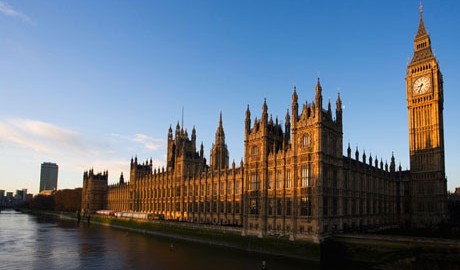
After the massive loss of the Alternative Vote referendum in 2011, I spent a lot of time saying to downcast electoral reformists “don’t say ‘this kills reform for a generation’”. My argument had two parts: 1. This isn’t true. 2. Predictions can help make reality.
And with the perspective of a couple of years, the loss of that campaign might come to be seen as a blessing. Having spent months knocking on doors, like many others, with something less than full conviction, saying “well yes AV isn’t very good but it is an improvement on what we have now”, had that vote, somehow, been won, opponents of political reform could have said “you’ve got what you wanted, don’t expect any more”.
Instead, it’s now clear that we have a political system dating back from the early 20th-century that’s utterly unfit for modern purposes. Almost no one is claiming that it works; no one really can with any honesty say it does work.
You can start with the unelected House of Lords, shadowed by the fact that the three largest parties went into the 2010 election promising reform that they haven’t delivered.
But an even bigger issue is the house of government, a Commons that’s elected through a first-past-the-post system designed for a two-party world, when those two parties, on recent polling, have combined total support of 63% (and that’s without adding in the non-voters).
Then there’s the fact that the system is delivering “representatives” profoundly unrepresentative, and often repulsive, to the people forced to vote for them. Mumsnet has been exploring the sexist culture, researchers have identified the growing dominance of the political class, money and enthusiasm is drying up at the local level.
Put that together with the fact that the views of the largest parties are entirely opposed to those of voters. Renationalising the railways has the support of 64% of the public, yet only the Green Party fully backs this policy on the national political stage. Keeping our NHS publicly owned and publicly run, with the profit motive having no place in its operation is hugely popular, yet again only the Green Party is saying that. Making the minimum wage a living wage, no get outs, again that’s backed by the public, and the Green Party.
The need for change – towards a system of proportional representation that delivers MPs, upper house members, and councillors, who reflect the range of views of the electorate – is undeniable.
But there’s one big block to the push for electoral reform: many of the people who’d have to find a new role in life were our electoral system to be reformed have to vote for that change. In simple terms, you’d have to get a lot of turkeys to vote for Christmas.
Which is why the results of the recent local elections are particularly interesting. For on many councils around the country, particularly in London and Midlands and Northern cities, the first past the post system has delivered one-party states, or something very close to that, which doesn’t reflect the political mix of their voters. My home borough in London, Camden, is a good example.
To change that, it wouldn’t need the turkeys to vote for Christmas – the councillors don’t control their own electoral system – but for turkeys to vote for chicken dinners all around. Much easier to imagine.
The usefulness of this issue has been identified by the Electoral Reform Society, which has started a petition calling for a single transferable vote system for local elections, as already exists in Scotland. That’s a good area on which to push.
And if councils were elected by a fair system, then Westminster, looking also over the Channel to the proportionally elected Brussels parliament, would look even more like the tired, worn-out, failed machine that it is.
You could look at the government’s deeply cynical, indeed ridiculous, offering of “improved democracy” in the Queen’s Speech – the power of recall of MPS. That’s a “power” offered if the courts, or fellow MPs, vote to allow it – a derisory “power” indeed.
You might suggest that means arguing for reform is hopeless, but I’d say the opposite: it just reinforces the need for change.
Electoral reform isn’t easy. It’s not going to be delivered on a platter. But the need is undeniable and urgent; we need it to save our democracy.
Natalie Bennett is the leader of the Green party of England and Wales.
More Stories
Navalny’s death used to hide western failures in Ukraine and their support for Israel’s genocide
Gifts from Gaza
Vulture capital circles over the corpse of Ukraine…